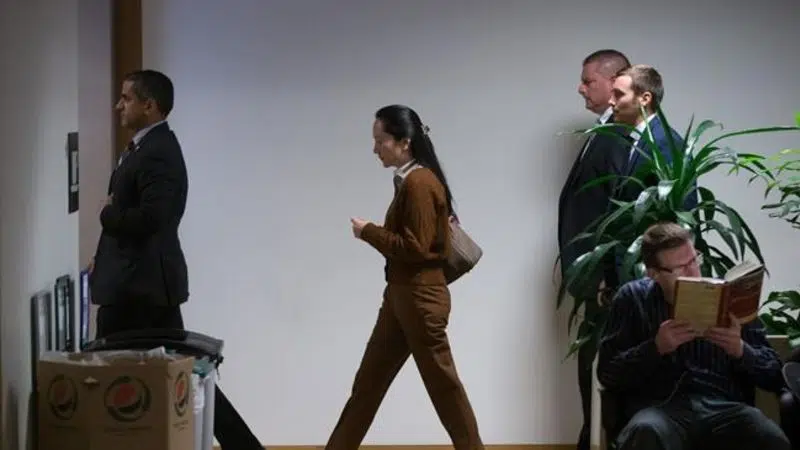
RCMP gave FBI serial numbers, other details about Meng Wanzhou’s phones: defence
VANCOUVER — A lawyer for Huawei Technologies executive Meng Wanzhou says the RCMP illegally passed on serial numbers and other crucial details of her electronic devices to the Federal Bureau of Investigation, but the Crown denies the allegation.
Scott Fenton said Mounties provided information that enables U.S. authorities to find out calls made and received, phone numbers, time and duration of calls and the physical location of cell towers where calls were connected.
“This is a very serious matter,” Fenton told a British Columbia Supreme Court judge on Thursday.
“The provision of this technical information is a gateway to U.S. law enforcement taking other investigative steps … to get other information to use against Ms. Meng.”

